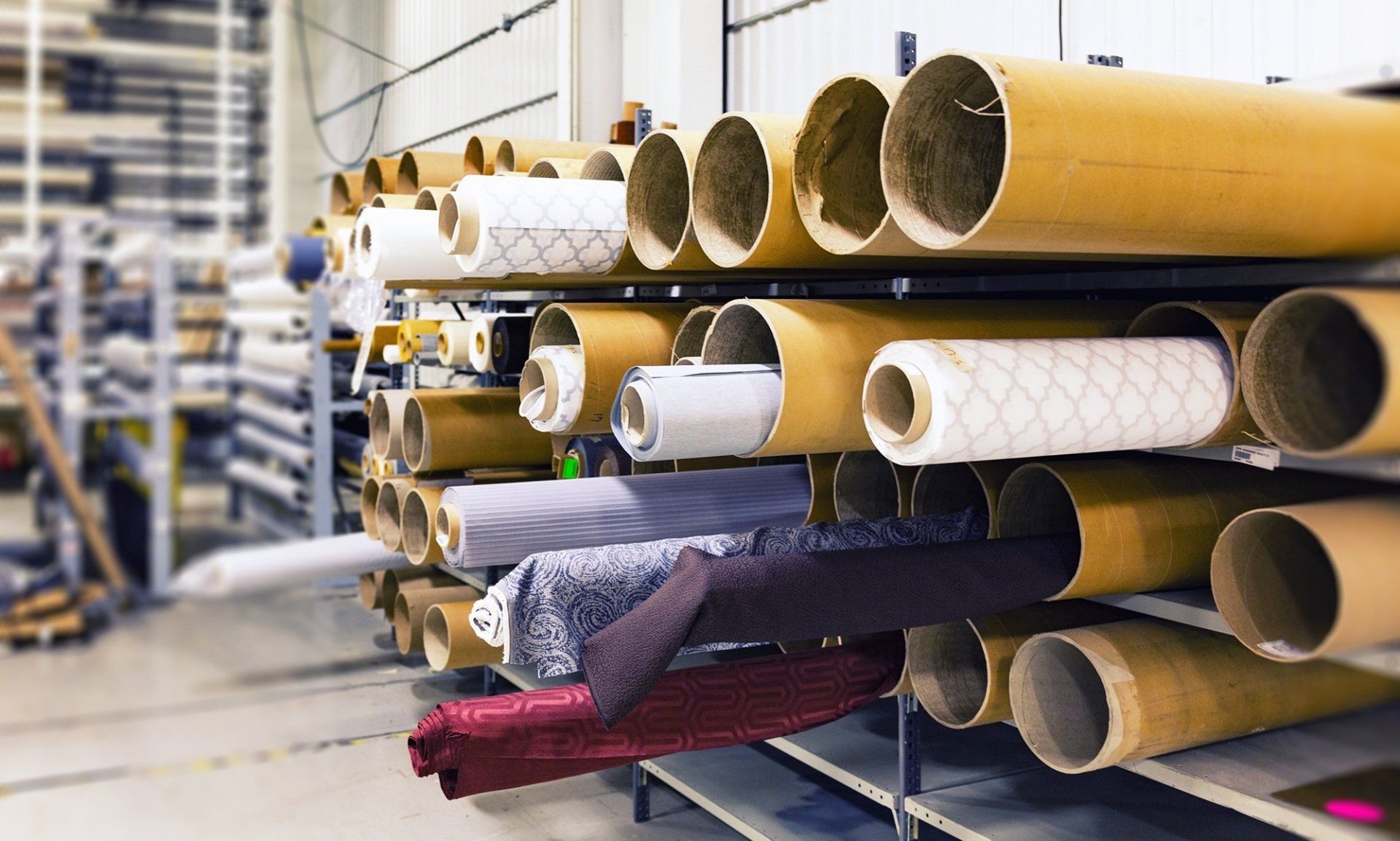Workers' Comp Insurance For Manufacturing Industries In Idaho: Ensuring Worker Well-Being
In the manufacturing industry, workers face a multitude of risks and hazards that can potentially lead to injuries or illnesses. As such, it is crucial for manufacturing companies in Idaho to prioritize the well-being of their workers by providing them with adequate workers' compensation insurance.
This article aims to highlight the importance of workers' compensation insurance in manufacturing industries and how it supports injured workers, ensuring prompt medical care and financial assistance. Learn more at
Idaho Workers Compensation Insurance and get free quote today!
Contact Us
We will get back to you as soon as possible.
Please try again later.
Manufacturing workers are exposed to various occupational hazards, such as heavy machinery, repetitive tasks, exposure to harmful substances, and physical exertion. These risks can result in accidents leading to severe injuries or even fatalities. In order to protect the well-being of manufacturing industry employees, workers' compensation insurance plays a pivotal role.
It provides a safety net for injured workers by offering financial support for medical expenses, rehabilitation costs, lost wages due to temporary or permanent disabilities, and even death benefits for the families of those who lose their lives on the job.
By having robust
workers' compensation insurance policies in place, manufacturers can proactively address any workplace injuries or illnesses that may occur. Such policies ensure that injured employees receive immediate medical attention without bearing the burden of hefty healthcare expenses themselves.
Furthermore, this type of coverage also helps alleviate financial hardships faced by workers during their recovery period when they might be unable to work and earn an income. By prioritizing worker well-being through comprehensive compensation programs, manufacturing industries in Idaho can create a safer working environment while fostering employee loyalty and productivity.
Key Takeaways
- Workers' comp insurance is crucial for manufacturing companies in Idaho to prioritize the well-being of their workers.
- Workers' compensation insurance provides financial support for medical expenses, rehabilitation costs, lost wages, and death benefits.
- Workers' comp insurance helps alleviate financial hardships faced by workers during their recovery period.
- Workers' compensation insurance fulfills regulatory obligations and promotes worker well-being.
The Importance of Workers' Compensation for Manufacturing Industries
The implementation of workers' compensation insurance in manufacturing industries is crucial for safeguarding the well-being and ensuring the financial security of workers. Legal requirements play a significant role in emphasizing the need for this type of insurance. In Idaho, like many other states, employers are legally obligated to provide workers' compensation coverage to their employees. This requirement ensures that if an employee suffers from a work-related injury or illness, they are entitled to receive medical treatment and wage replacement benefits without having to bear the financial burden themselves.
It not only provides a safety net for workers but also promotes a sense of security and peace of mind within the workforce. Additionally, considering the cost of workers' compensation is essential in understanding its importance for manufacturing industries. Without proper coverage, companies may face substantial financial burdens in compensating injured employees out-of-pocket. Manufacturing industries often involve high-risk activities and hazardous working conditions, making them more prone to workplace accidents and injuries.
Workers' compensation insurance helps mitigate these risks by providing timely medical care and rehabilitation services to injured employees at no additional cost to employers. By transferring the financial responsibility onto insurance providers, businesses can focus on maintaining productivity and profitability while ensuring that their employees receive appropriate care during times of distress.
Overall, legal requirements and cost considerations highlight why workers' compensation insurance is imperative for manufacturing industries. It not only fulfills regulatory obligations but also offers a proactive approach towards promoting worker well-being by providing necessary support when unforeseen accidents occur. By prioritizing worker safety through comprehensive insurance coverage, manufacturers can create an environment conducive to productivity while simultaneously protecting their most valuable asset—their employees—from potential harm or financial strain.
Understanding the Risks Faced by Manufacturing Workers
Understanding the risks faced by individuals employed in industrial settings can be likened to unraveling the intricate layers of a complex puzzle. Manufacturing workers are exposed to a wide range of workplace hazards that can significantly impact their well-being and safety. To ensure a comprehensive understanding, it is essential to consider the following:
- Physical Hazards: Manufacturing workers often encounter various physical dangers, such as heavy machinery, moving parts, and high noise levels. These hazards can lead to severe injuries if proper precautions are not taken. For instance, workers may suffer from crush injuries or amputations due to inadequate machine guarding or lack of training on equipment operation.
- Chemical Hazards: The manufacturing industry utilizes numerous chemicals that pose potential health risks if mishandled or improperly stored. Exposure to hazardous substances like solvents, acids, or toxic gases can result in respiratory problems, skin irritations, or even long-term illnesses like cancer. It is crucial for manufacturing employers to implement strict protocols for chemical handling and provide appropriate personal protective equipment (PPE) to mitigate these risks.
- Ergonomic Hazards: Repetitive motions and awkward postures are common in manufacturing tasks and can lead to musculoskeletal disorders over time. Workers who frequently lift heavy objects without proper ergonomics may experience back pain, strains, or sprains. Implementing ergonomic workstations and providing training on safe lifting techniques are essential preventive measures that manufacturers should prioritize.
To safeguard the well-being of manufacturing workers effectively, it is imperative for employers to identify these hazards proactively and implement prevention measures accordingly. A proactive approach involves conducting regular risk assessments, providing extensive safety training programs, enforcing strict adherence to safety protocols, and promoting a culture of continuous improvement when it comes to workplace safety standards.
By addressing the identified risks head-on through preventive measures and ongoing evaluation processes, manufacturers can create safer working environments that prioritize worker well-being while minimizing occupational injuries and illnesses within their workforce.
How Workers' Compensation Supports Injured Workers
An effective system of support for injured workers is crucial in providing them with the necessary resources and assistance to overcome the challenges they face. Workers' compensation serves as a vital tool in this regard, offering rehabilitation services and legal protection to ensure injured manufacturing workers receive the help they need.
When an employee gets injured on the job, workers' compensation can cover medical expenses, including hospital visits, surgeries, medication, and therapy sessions. This coverage not only helps injured workers access necessary healthcare treatments but also alleviates financial burdens that may arise from medical bills.
Moreover, workers' compensation provides vocational rehabilitation services to assist injured manufacturing workers in returning to work or finding alternative employment if their injuries prevent them from resuming their previous roles. These services may include skills training programs, job placement assistance, and counseling to aid in the transition back into the workforce.
By offering such comprehensive support, workers' compensation enables injured individuals to regain their independence and rebuild their lives after experiencing workplace accidents. Furthermore, aside from providing rehabilitation services, workers' compensation also offers legal protection for both employers and employees involved in workplace accidents.
Through this system, injured manufacturing workers are generally entitled to benefits regardless of fault or negligence. This means that even if an accident occurred due to the worker's own actions or mistakes made by others within the company, they can still receive compensation for their injuries. Similarly, employers are shielded from lawsuits related to workplace injuries since employees typically relinquish their right to sue upon accepting workers' compensation benefits.
An effective support system provided by workers' compensation plays a crucial role in assisting injured manufacturing workers. By covering medical expenses and offering rehabilitative services like vocational training programs and counseling support, it ensures that these individuals can recover physically and mentally while maintaining financial stability during their recovery period. Additionally, through its legal protections for both employers and employees involved in workplace accidents, it fosters a more balanced approach towards resolving issues arising from work-related injuries.
Ensuring Prompt Medical Care and Financial Assistance
Prompt and comprehensive medical care, as well as timely financial assistance, are essential components in providing necessary support to injured workers. When an employee sustains an injury in a manufacturing industry in Idaho, ensuring timely treatment is crucial to promote their recovery and prevent any further complications. Employers should establish effective protocols to promptly address injuries by connecting injured workers with healthcare providers specializing in occupational health.
This ensures that the injured employees receive appropriate medical attention tailored to their specific needs. By prioritizing quick access to medical care, employers can help alleviate pain and minimize the impact of injuries on workers' overall well-being. In addition to ensuring timely treatment, providing financial aid plays a significant role in supporting injured workers during their recovery period. Workers' compensation insurance for manufacturing industries in Idaho typically includes provisions for wage replacement benefits that compensate employees for lost wages due to work-related injuries or illnesses.
These benefits aim to provide financial stability during the time when individuals are unable to work or have limited earning capacity due to their injuries. Employers should proactively communicate with injured workers about the available financial resources and guide them through the process of accessing these benefits efficiently. By doing so, employers demonstrate their commitment towards safeguarding worker well-being beyond physical recovery, acknowledging the importance of maintaining economic security during challenging times for injured employees.
Safeguarding the Well-being of Manufacturing Industry Workers in Idaho
Safeguarding the well-being of manufacturing industry workers in Idaho requires a comprehensive approach that addresses both their physical and financial needs, ensuring their path to recovery is smooth and supported. One crucial aspect of this approach is prioritizing workplace safety measures to prevent injuries. Manufacturing industries are often associated with high-risk work environments due to heavy machinery, repetitive tasks, and exposure to hazardous materials. Therefore, it is essential for employers in Idaho's manufacturing sector to implement effective safety protocols and provide proper training to reduce the likelihood of accidents.
To promote injury prevention, employers can establish regular safety inspections and audits to identify potential hazards and address them promptly. This proactive approach allows for timely intervention before accidents occur. Additionally, providing workers with appropriate personal protective equipment (PPE) such as gloves, goggles, earplugs, and safety harnesses can significantly reduce the risk of injuries or illnesses resulting from workplace conditions. Furthermore, implementing ergonomic workstations and equipment can help minimize musculoskeletal disorders caused by repetitive motions or awkward postures.
Incorporating these measures not only safeguards the physical well-being of manufacturing industry workers but also contributes to their financial stability by reducing the number of work-related injuries. By preventing accidents from happening in the first place, employees are less likely to experience medical expenses or loss of income due to time off work during recovery. Thus, a proactive stance towards workplace safety ultimately benefits both workers and employers by fostering a healthier workforce that can contribute effectively towards achieving business goals in Idaho's manufacturing sector.
| Workplace Safety Measures | Benefits |
|---|---|
| Regular safety inspections | Timely identification and mitigation of hazards |
| Providing personal protective equipment (PPE) | Reducing the risk of injuries or illnesses |
| Implementing ergonomic workstations | Minimizing musculoskeletal disorders |
Idaho Select Insurance Helping Manufacturing Industries
In conclusion, workers' compensation insurance plays a crucial role in ensuring the well-being of manufacturing industry workers in Idaho. By understanding the risks faced by these workers, such as workplace accidents and repetitive strain injuries, employers can take proactive measures to mitigate these risks and create a safer working environment. Workers' compensation provides injured workers with necessary medical care and financial assistance, ensuring they have access to prompt treatment and support during their recovery process.
One interesting statistic that highlights the importance of workers' compensation is that in 2019 alone, there were approximately 2.8 million nonfatal workplace injuries and illnesses reported by private industry employers in the United States
(Bureau of Labor Statistics). This staggering number demonstrates the prevalence of workplace injuries across various industries, including manufacturing. Without proper workers' compensation coverage, injured employees may face significant financial burdens and delays in receiving essential medical treatments.
By implementing comprehensive workers' compensation policies tailored to the specific needs of manufacturing industries in Idaho, employers can safeguard their workforce's well-being. These policies should include proactive measures such as regular safety training programs, ergonomic assessments of workstations, and prompt reporting and investigation processes for any incidents or near misses. Additionally, employers should collaborate closely with healthcare providers to ensure injured workers receive appropriate medical care promptly.
In conclusion, prioritizing worker well-being through robust workers' compensation insurance is not only ethically responsible but also economically beneficial for manufacturing industries. By investing in employee safety and providing adequate support for injured workers, companies can reduce productivity losses due to accidents or illnesses while creating a positive work environment that fosters employee loyalty and engagement. It is imperative for both employers and policymakers to recognize the significance of this issue and strive towards continuous improvement in worker protection within the manufacturing sector in Idaho.
Affordable Insurance With Personal Service - Local Agents & Brokers
CONTACT US
Phone: 208-515-2625
Email Us:
tony@idselectins.com
chris@idselectins.com
Meridian Office
3023 E Copper Point Dr. #203
Meridian, ID 83642
Boise Office: 9727 W Cory Ln Ste. 101
Boise, ID 83704
Insurance Services
Have Questions or Request A Quote
Contact Us
We will get back to you as soon as possible.
Please try again later.






